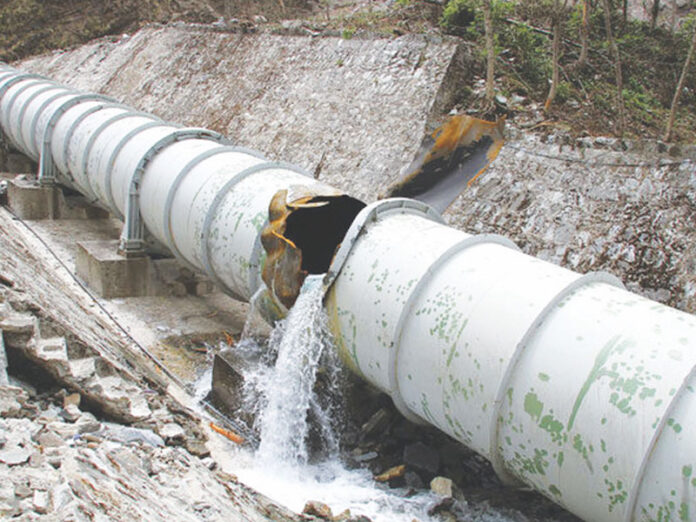By Jeph Ajobaju, Chief Copy Editor
Attacks on oil facilities in the oil basin in the Deep South dropped from 623 in 2014 to 94 by June 2021, an 84.9 per cent reduction that rides on Abuja’s initiatives and on a shift by Niger Delta militants to making money through oil theft.
Nigeria spends N60 billion yearly to repair and maintain vandalised oil and gas pipelines, Information Minister Lai Mohammed said at a town hall on Protecting Oil and Gas Infrastructure in Abuja.
Destruction of oil facilities has reduced partly because militants now refine crude stolen from pipelines to make money instead of risking their lives by setting oil infrastructure ablaze.
The cottage industry employs more than 500,000 youths who now seem content except for occasional agitation by some of the 65 ethnic nationalities in the South South for restructuring the country.
“From 2015 to today, we have [had] a calmer Niger Delta,” says Minister of State for Petroleum, Timipre Sylva.
However, the relative peace comes with quiet collateral damage that siphons money from the national treasury.
Crude oil theft counts 200,000 barrels per day (bpd), says the Nigerian National Petroleum Corporation (NNPC), which has expressed concern about the impact on the economy of petroleum products smuggling and crude oil theft.
Sylva disclosed at the town hall that attacks on oil and gas facilities dropped from 623 to 94 between 2014 and June 2021.
Sylva, represented by NNPC Group Managing Director Mele Kyari, said the activities of vandals, which greatly hampered production in the past, have significantly reduced in recent times, per Nairametrics reporting.
“First is, underinvestment, you may genuinely not be able to put your money into it, and secondly, you may have the money and not be able to, due to the activities of vandals, which can actually stop you from increasing your production.
“This is a challenge in our environment. However, I can confirm to you that it is not all bad news, because from 2015 to today, we have [had] a calmer Niger Delta.
“We have far fewer issues on vandals action on our facilities than our access; that means the impact of attacks on our facilities has significantly reduced.”
Sylva described two types of oil facility vandals – those genuinely aggrieved and are into activism and those who steal crude – both of whom constitute a problem.
He added that attacks on facilities pollute the environment and create a new set of problems for everyone, diverting attention from revenue to environmental issues.
“In 2014, we had 623 attacks on our pipelines; today, in 2021, we only have 94 attacks. This is because some of them are innocent and can’t find clean water to drink and can’t go to their farms.
“The issue of attacks on oil and gas facilities is a concern to all of us because it affects all of us and we can do something by communicating appropriately.”
Impact of pipeline vandalism
Mohammed said an average 200,000 bpd are lost to pipeline vandals who cause a lot of damage to facilities which also impact negatively on the environment, as reported by the News Agency of Nigeria (NAN)
His words: “Apart from the impact on the nation’s earnings, consider also the environmental problems caused by the incessant vandalism, in terms of freshwater pollution, air pollution, soil pollution etc., you will appreciate the enormity of the problem.”
With oil providing 80 per cent of budget revenue and 95 per cent of foreign exchange (forex) earnings, Mohammed reiterated, the impact of incessant destruction of oil pipelines on the economy is quite enormous.
“To have railway tracks subjected to wanton destruction, bridge railings removed, manhole covers pilfered is antithetical to development.
“Having street lights and other power infrastructure, oil pipelines, telecoms facilities and critical aviation infrastructure damaged or stolen do not augur well for our growth and development.”
“It is common knowledge that Nigeria has long suffered massive infrastructure deficit due to decades of neglect, population explosion and the absence of maintenance culture.
“But since coming into office in 2015, the Muhammadu Buhari administration has embarked on a rapid economic growth with equity.
“The administration has equally prioritised human capital development through enhanced social services and infrastructure development.
“In spite of a drastic drop in revenues and competing priorities, especially that of tackling insecurity, the administration has invested heavily in providing new infrastructure, in addition to reconstructing and rehabilitating existing ones.”
Mohammed said the town hall was organised to create public awareness that government property is citizens’ property which should be protected for the benefit of all.
The town hall is in addition to sensitising host communities to the benefits of protecting public infrastructure and to expose those who buy and sell stolen infrastructure items.
N851.8b lost to pipeline vandalism
Nairametrics quoted reports of about 1,161 pipeline points being vandalised across the country between January 2019 and September 2020.
Last month, the Nigerian Extractive Industry Transparency Initiative (NEITI) disclosed that Nigeria lost N851.84 billion ($2.78 billion) to oil theft and pipeline sabotage in 2019.
NEITI estimated the amount based an average price of $65.61 pb and N306.42/$ exchange rate.
But it noted 21 per cent reduction in pipeline vandalism from 2018 when 53.28 million barrels were lost.













